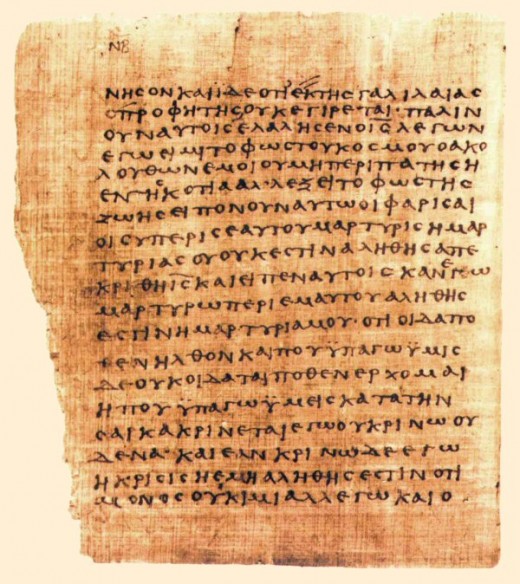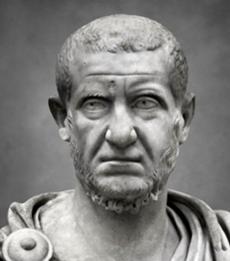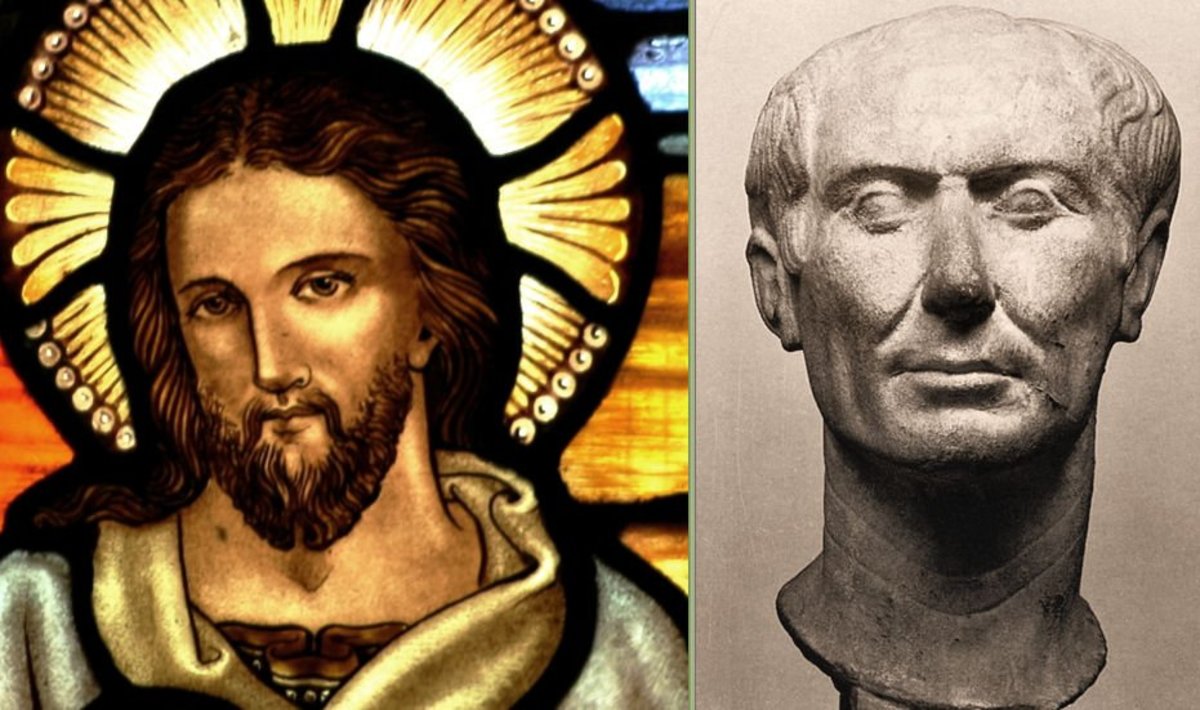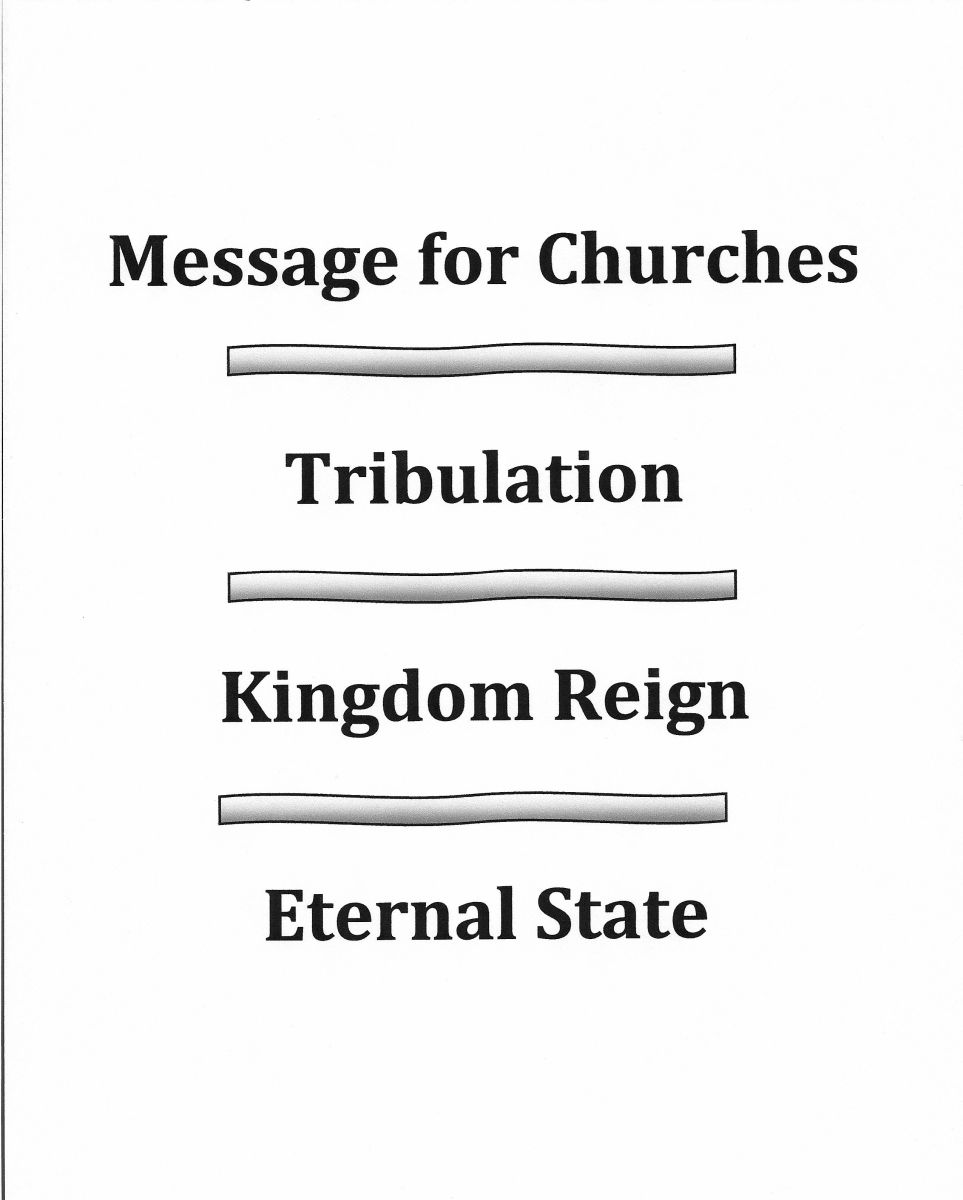Extra-Biblical Sources for the Historicity of Jesus Christ

As is true with several religious traditions, Christianity is inextricably linked with history. For both the early church and the church of the modern era, the historical reality of Christ's birth, life, death and resurrection lays down the very foundation of the Christian faith. Were this foundation a shaky one, or altogether indefensible, the Christian would be forced to rely upon blind faith alone in light of contrary evidence. In fact, it has become almost commonplace in today's society to talk of "the man of faith" and "the man of science." While one relies solely upon testable, empirical data to formulate his worldview, the other has already made up his mind regarding truth, and rests upon his belief system in light of any evidence to the contrary. This is precisely what is increasingly seen as the great problem for today's believer- truth and faith are not necessarily inseparable, but rather two sides of a coin. One can either choose to embrace faith in the light of insurmountable evidence to the contrary, or eschew it altogether and instead embrace historical truth rooted in reason. But is that truly a dichotomy we are faced with?

Unsurprisingly, this dichotomy has extended into the realm of the historical Jesus. It is far too common to hear the complaint raised that any alleged historical truth which has been gleaned from the Bible is highly suspect and biased, and must be tested against the rigors of far more reliable sources- Roman and Greek historians- for instance (Never mind, or course, that nearly all ancient writing was infused with the deeply held religious convictions of its authors). Without spending time and effort in this paper detailing just how faulty this view is, I will rather concede to today's skeptic, and detail the numerous extra-biblical sources which help further cement the already solid foundation which has been laid for the existence of Jesus Christ.
This hub will be largely an apologetic venture, in which I will argue for the existence of Christ based upon historical evidence which lies outside of the New Testament. Granted, one will never be able to truly grasp the reality of who Christ was and is through extra-biblical source material alone, but in a culture where the very existence of this most pivotal figure of world history is increasingly questioned and often denied, it can oftentimes be a very beneficial apologetic tool to have a thorough knowledge of the men outside of the Bible who wrote about Christ and his followers in the years near to the events of his life.

Dr. Daniel Wallace on the Reliability of the New Testament
Tacitus

Tacitus
Tacitus was a Roman historian who wrote in the 2nd century. While much of his writings have been lost to us- most disappointing being his work between the years 29 and 32 AD, which, had he recorded it, would have given us further insight into the trial of Christ- there remains a single reference to Christ found within his Annals.1 In this particular passage, Tacitus explains emperor Nero's campaign against the Christians, a move meant to divert blame from himself for the fire of Rome in 64 AD:
Nero fastened the guilt and inflicted the most exquisite tortures on a class hated for their abominations, called Christians by the populace. Christus, from whom the name had its origin, suffered the extreme penalty during the reign of Tiberius at the hands of one of our procurators, Pontius Pilatus, and a most mischievous superstition, thus checked for the moment, again broke out not only in Judaea, the first source of the evil. but even in Rome....Accordingly, an arrest was first made of all who pleaded guilty: then, upon their information, an immense multitude was convicted, not so much of the crime of firing the city, as of hatred against mankind.2
Among all extra-biblical references to Christ, the above is generally considered by most scholars to be the strongest and most authentic. Tacitus, who served as a staunchly pro-Roman senator, speaks of Christianity in derisive terms, and hence minimizes the possibility that reference was written by a pro-Christian redactor. Critics of this source will undoubtedly point out that Tacitus refers to Pontius Pilate as "procurator," when in reality he was a "prefect," as discovered from a stone inscription at Caesarea Maritima.3 This small error of title hardly devalues Tacitus' entire testimony, however, and in fact strengthens Charlesworth's position when he states that::
Most likely, Tacitus was not working from official documents. He probably obtained information about Jesus from conversations with others, in Rome, elsewhere, and perhaps during the time he was governor of the western portion of Asia Minor about 112 C.E. 4
1 James H. Charlesworth, The Historical Jesus (Nashville: Abingdon Press, 2008), 33.
2 Tacitus Annals 15.44.
3 Charlesworth, The Historical Jesus, 33.
4 Ibid., 33-34.

Pliny the Younger
Another Roman, Pliny the Younger, nephew of the prolific author and philosopher Pliny the Elder, made reference to Christ in his writings- specifically in a letter to Emperor Trajan. Serving as governor of the Roman region Bithynia-Pontus from about A.D. 111 to 112, Pliny sought advice from the emperor as to how best deal with the increasingly large numbers of Christians in Bithynia-Pontus (modern-day Turkey).1 Pliny writes:
I have asked them if they are Christians, and if they admit it, I repeat the question a second and third time, with a warning of the punishment awaiting them. If they persist, I order them to be led away for execution; for, whatever the nature of their admission, I am convinced that their stubbornness and unshakable obstinacy ought not to go unpunished...They also declared that the sum total of their guilt or error amounted to no more than this: they had met regularly before dawn on a fixed day to chant verses alternately amongst themselves in honor of Christ as if to a god, and also to bind themselves by oath, not for any criminal purpose, but to abstain from theft, robbery, and adultery...This made me deiced it was all the more necessary to extract the truth by torture from two slave-women, whom they called deaconesses. I found nothing but a degenerate sort of cult carried to extravagant lengths.2
There are a number of parallels to Christian practices to be corroborated from this passage. Namely, these people worship Christ as God, they gather together in worship weekly, they are not swayed from their faith under threat of torture and death, they hold to a high moral code, and their faith is open to both women and slaves, a great departure from many religions of the day. Further insights to be gleaned from Pliny is that Christianity had spread to northern Turkey, and that no official policy had been formulated which detailed how to deal with Christians.3
As with Tacitus, the majority of today's scholars consider this to be an authentic account illuminating our understanding of the Christian faith in the 2nd century.
1 Darrell L. Bock, Studying the Historical Jesus (Grand Rapids, MI: Baker Academic, 2002), 50.
2 Pliny the Younger, Letters 10.96.
3 Bock, Studying the Historical Jesus, 51.

Julius Africanus
Another Roman source, though brief, is from the Christian chronographer Julius Africanus (A.D. 170-240), who commented on the writings of the Roman Thallus in his work Chronolgy, a piece of historical writing which covered the eastern Mediterranean.. Thallus actually makes a remark concerning the Christ's crucifixion and the earthquakes and darkness which followed. Thallus attempts to refute the idea that this darkness was in any way supernatural by arguing that a solar eclipse occurred at this time. Africanus rebuts this notion, arguing that during this Passover there would have been a full moon, an event which would preclude such an event from occurring. Though this is, technically, a Christian source, "Thallus's remark is significant because it shows that details about the crucifixion were widespread enough that a non-Christian writer wanted to refute them.".1
1 Ibid., 52.
Lucian of Samosata
Lucian, writing in the 2nd century, offers a unique source in that it is not a historical record, per se, but rather a satirical work which tells of a man who converts to Christianity but later leaves the faith. In The Passing of Peregrinus, Lucian compares the affections of fellow Christians for Peregrinus with their worship of Christ, "next after the other, to be sure, whom they still worship, the man who was impaled in Palestine because he introduced this new cult into the world." As Bock points out, "the reference to impaling is a mocking allusion to the origin of crucifixion, which developed from the older custom of impaling victims."1
1 Bock, Studying the Historical Jesus, 52.
Suetonius
In his work titled, Lives of the Twelve Caesers, Suetonius, another Roman historian, makes this statement regarding an action carried out by Emperor Claudius: "As the Jews were making constant disturbances at the instigation of Chrestus, he expelled them from Rome."1 While it is generally agreed that this source is indeed genuine, the debate on whether or not Suetonius was referring to Jesus Christ is far from settled. Given the weakness, and compelling arguments against this source, as well as the strength of the source of Suetonius' contemporary, Tacitus, it would be unwise to invest a fair amount of energy in asserting unequivocally that this does indeed refer to Jesus of Nazareth.
1 Suetonius, Claudius 25.4.

Josephus
Josephus wrote extensively on Jewish history, producing the works The Jewish War and Antiquities of the Jews. Josephus, himself a Jew, fought against the Romans as a commander of Galilean forces in the first Jewish-Roman War of 67, but surrendered and eventually defected to the Romans, becoming a Roman citizen just two years later. In Antiquities, there exist references to James and Jesus. Among many scholars, Josephus' words concerning Christ- known as the Testinomium Flavianum- are some of the, if not the most compelling extra-biblical words in the search for the historical Jesus. Both of the following sources, if authentic, are of enduring value.
The Brother of Jesus
Here Josephus refers to James, identifying him as "the brother of Jesus- the one called Christ."1 This passage tells of the execution of James by the ruling of the high priest Annas the Younger. Though under Roman rule, and so acting outside the parameters of his own authority, Annas took advantage of the three month absence of Judea's Roman ruler to deal with James as he saw fit.
He convened a judicial session of the Sanhedrin and brought before it the brother of Jesus the one called Christ- James by name- and some others, whom he charged with breaking the law and handed over to be stoned to death.2
Scholar J.P. Meier makes several points which help strengthen the legitimacy of this passage. First, Josephus is clearly distinct from Christian authors in saying, "James the brother of Jesus." Neither early Christian writings or those of the New Testament fail to speak of Jesus with his due reverence, and instead would refer to James as, "the brother of our Lord," or "the brother of the Savior." Secondly, Josephus considers James a rather unimportant character, whose mention is only necessary to explain the larger narrative of Annas. In fact, Josephus is forced to mention Jesus as an identifier due to the insignificance of James to Josephus' audience. Lastly, this passage is quoted by the 4th century church historian Eusebius, and "is found in the main Greek manuscript tradition of The Antiquities without any notable variation."3
1 Josephus, Antiquities, 20.9.1.
2 Ibid., 20.200.
3 John P. Meier, "Jesus in Josephus : a modest proposal," Catholic Biblical Quarterly 52, no. 1 (1990): 79, accessed December 2, 2013, ATLA Religion Database with ATLASerials, EBSCOhost .
The Testimonium Flavianum
The importance of the Testimonium Flavianum cannot be understated. If authentic, it serves as an extremely important source for corroborating the biblical account with outside sources. However, there exists no small amount of controversy regarding this passage. Some scholars deny the authenticity of the entire passage, some affirm its authenticity in its entirety, and others hold every view in between these two extremes. The text, found in Antiquities 18:63-64, reads as follows:
About this time there lived Jesus, a wise man, if indeed one ought to call him a man. For he was one wrought surprising feats and was a teacher of such people as accept the truth gladly. He won over many Jews and many of the Greeks. He was the Messiah. When Pilate, upon hearing him accused by men of the highest standing amongst us, had condemned him to be crucified, those who had in the first place come to love him did not give up their affections for him. On the third day he appeared to them restored to life, for the prophets of God had prophesied these and countless other marvelous things about him. And the tribe of the Christians, so called after him, has still to this day not disappeared.1
There are, rightly I believe, three points within this passage which most scholars tend to doubt as having come from Josephus' own pen: "if indeed one ought to call him a man," "He was the Messiah," and "On the third day he appeared to them restored to life, for the prophets of God had prophesied these and countless other marvelous things about him." It is not difficult to see the problems inherent in a Jewish man who had once been a Pharisee referring to Christ as the Messiah and affirming his divinity and resurrection. However, the rest of the passage fits with Josephus' writing style and, as pointed out by Meier, "...these three Christian passages are the clauses that interrupt the flow of what is otherwise a concise text carefully written in a fairly neutral...tone."2
1 Josephus, Antiquities, 18.3.3.
2 Meier, "Jesus in Josephus: a modest proposal," 87.

Conclusion
The criticism has often been raised that for one who has had such a profound affect on history, the historical record should be far more plentiful than this handful of references. However, as noted by Craig Blomberg in his book, Jesus and the Gospels, historians of the ancient world were rarely concerned with the deeds of poor men living in the region of Palestine, especially when they preached a message that directly contradicted the religious paradigm of the day. Rather, "we have to remember that in the ancient world, history was almost exclusively the chronicle of the deeds of politicians, warriors, and holders of high religious office."1
Rarely are skeptics who doubt the existence of Christ swayed by historical evidence. When a position is deeply held, there are always those in positions of academia who will affirm such a view, despite loads of evidence to the contrary. But accepting Christ as lord and savior of one's life is hardly a venture limited to an educated view on his historicity, and so this paper should serve as but a stepping stone into dialogues with those who deny Christ's existence. Of course it goes without saying that a belief in the mere existence of Christ is far removed from engaging in a relationship with him as the God of all existence. The Christian must argue for Christ's existence, yes, but without his death and resurrection, our beliefs can be no more intimate and profound than the admiration one may hold for Socrates or Plato. Jesus is tied to history, yes, but he has far surpassed the station of mere historical figure.
1 Craig Blomberg, Jesus and the Gospels (Nashville: B&H Publishing Group, 2009), 435.








